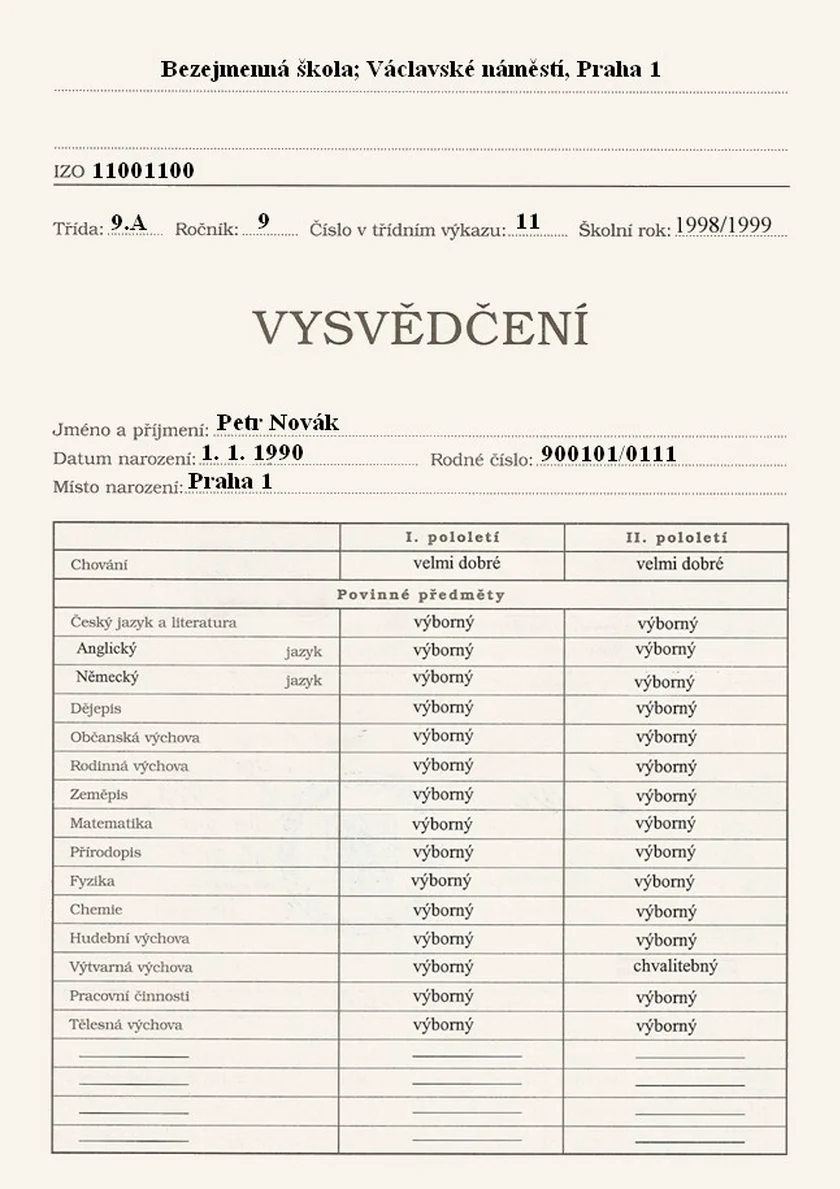On Thursday, approximately 1.4 million primary and secondary school students received their end-of-the-year grades. Called 'vysvědčení' in Czech, the passing out of report cards represents the end of the academic year.
Just in time for all the joys and tears brought about by the presence of excellent 1s or less-than-stellar 3s on report cards, a Czech think tank is questioning the country’s grading practices.
A new study by the IDEA think tank at the National Economic Institute of the Academy of Sciences of the Czech Republic says that strict school grading reduces children's ambitions in education and work careers.
According to researchers, differences in grading are vast in the Czech Republic, with the evaluation of the same pupils' results differing between schools by an average of one whole grade. In addition, the teachers' approach to girls and boys or children from wealthier families is also different.
The subjective nature of grading discourages students from future study and career ambitions, says Tomáš Protivínský, one of the authors of the study.
Do you think the grading system used in Czech schools is fair?
"With the same skills, pupils from schools with strict grading have lower academic ambitions than pupils from schools with moderate grading. Differences in the rigor of grading and the essential role of grades in planning a future educational path can therefore lead to inadequate decisions by pupils and parents, inefficiencies in the education system, and less optimal talent allocation," he says.
IDEA’s research, shows for example, that up to 87 percent of ninth-graders with a "1" in math want to graduate from college, while among students with a "3", it is 39 percent. In addition, report card grades are often one of the admission criteria at secondary schools and multi-year gymnasiums, significantly influencing the type of work students want to pursue, say researchers.
In terms of bias, the study pointed out that teachers approach children differently when grading, sometimes according to gender or the socio-economic status of their families. For the same math result, girls get on average a third better grade than boys. For pupils from better-off families, the difference is roughly a quarter of a grade, the researchers said.
Girls and pupils from wealthier families are significantly more interested in graduating from university than boys and children from poorer backgrounds with otherwise the same level of mathematical skills.
According to scientist Daniel Münich, the differences in the strictness of marking disrupt the educational process, which grading should, on the contrary, support. He believes the Czech School Inspectorate should examine the issue further.

"Grades should therefore be based more on more objective criteria and it is very appropriate to supplement them with a more detailed written assessment," he says, adding that grading is used in most Czech schools and the ministerial decree gives teachers a great deal of autonomy.
Last school year, for example, the Ministry of Education called for schools to prioritize verbal assessment over grades in connection with distance learning during the Covid-19 epidemic. A quarter of schools used oral or combined assessment in at least some classes in the mid-term. At that time, 15 percent of elementary schools and less than a tenth of secondary schools made a change in their approach to mid-term evaluation.
The rules for student evaluation are part of the school regulations of each school and are approved by the school board. If the primary school replaces grades with a verbal assessment on the report card, it must later convert it back to grades for the purposes of secondary school entrance exams.












 Reading time: 3 minutes
Reading time: 3 minutes 




























